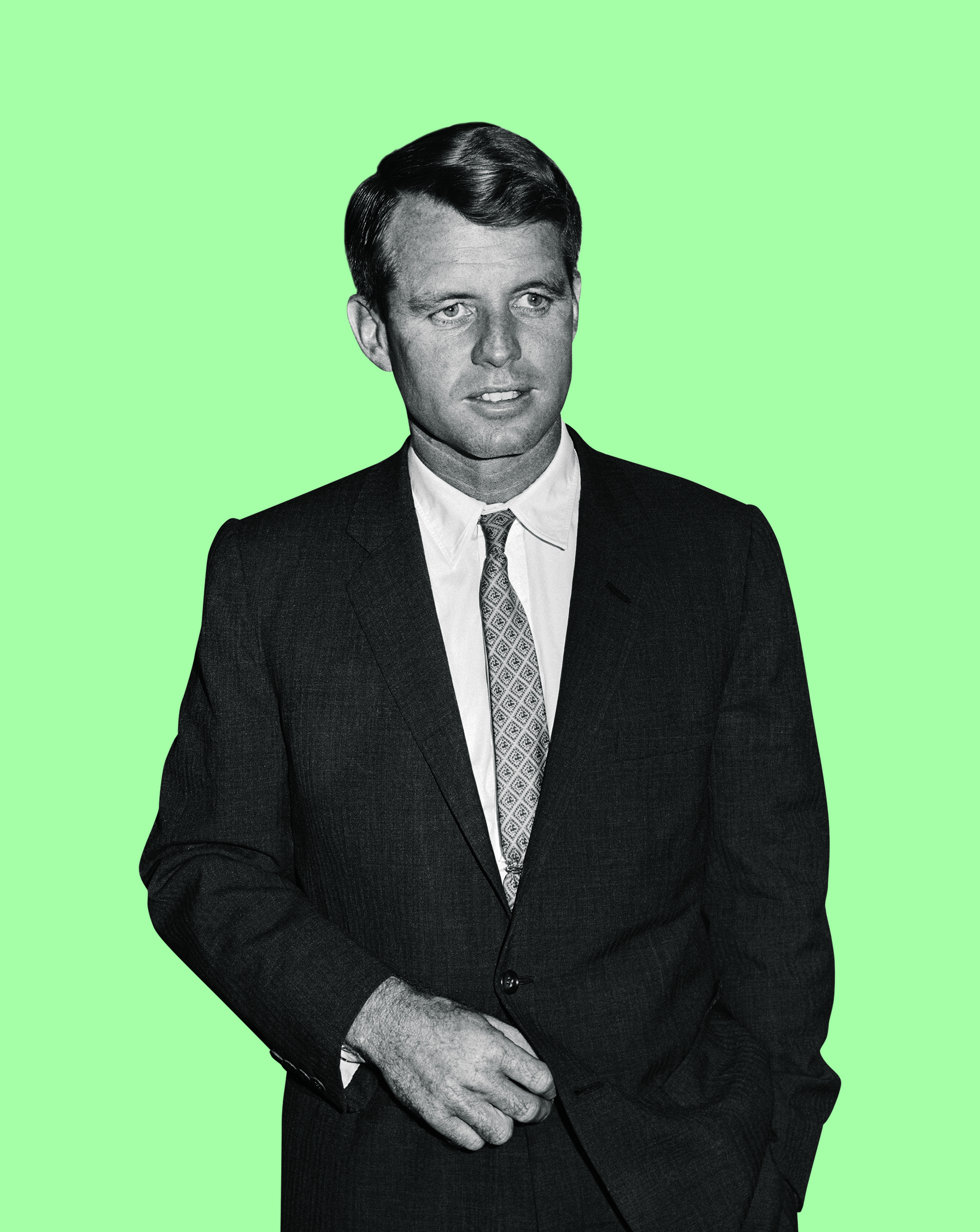
Think of John F. Kennedy, Lyndon B. Johnson or Richard Nixon. Each, in his own way, is firmly set in a certain era of American history. Yet as vibrant as they were at the peak of their power and influence, none of these men could easily slip into the contemporary political world. Their leadership was unique to their time and place.
That does not ring true for my father, Robert F. Kennedy, who was killed 50 years ago. His appearance is ever modern: the shaggy hair, the skinny ties, the suit jacket off, the shirt sleeves rolled. Beyond appearances, what is striking about RFK are the themes he returned to again and again — themes that still energize the debate and resonate in our own time.

Think of the headlines over the past few years and it is easy to hear Robert Kennedy’s voice and imagine him speaking out in our country — on the madness of gun violence, the shame of police brutality, the need for compassion in welcoming immigrants and refugees, the urgent need to defy the call to war and, where war has broken out, the moral necessity of seeking peace. One imagines him urging us to focus not only on stopping terrorism but also on understanding and addressing its root causes. He would encourage us to focus on the destructive force of hate, the disillusionment of young people, the inherent injustice of a criminal-justice system that discriminates based on race and class and sends thousands to jail simply because they are too poor to make bail — the new Jim Crow. And it is easy to think of RFK reminding us of the duty to address the struggles of those who are not in the headlines, the most vulnerable among us: farmworkers, small farmers, factory workers, people who have seen the jobs that once supported them replaced by cheap labor or technology. He would also remember our duty to Native Americans and those suffering in the hollows of Appalachia, on the Mississippi Delta and in the most destitute slums of our great cities.
In the 1950s, he spent much of his time on the Senate Committee on Investigations fighting the excesses of its chair, Joe McCarthy, and his chief counsel, Roy Cohn — two figures who echo in the news today. He later caused Cohn’s resignation and led to the end of McCarthy’s reign of terror. Asked a decade later by Peter Maas how he could have worked for McCarthy, Kennedy responded, “Well, at the time, I thought there was a serious internal security threat to the United States … [and] Joe McCarthy seemed to be the only one doing anything about it. I was wrong.”
But to leave it at stopping the bullies would not do him justice. On that terrible night when he told a crowd in downtown Indianapolis that Martin Luther King Jr. had been murdered, he included in his remarks a quote from Aeschylus: “To tame the savageness of man and make gentle the life of the world.” Indeed, my father focused much of his life taming the savageness, and he made gentle the life of the world.
There was no quality my father admired more than courage, save perhaps love. I remember after dinner one night he picked up the battered poetry book that was always somewhere by his side and read aloud Tennyson’s poem “The Charge of the Light Brigade.” We listened aghast to the story of a group of soldiers whose commanding officer orders them to ride into an ambush, knowing they will be slaughtered — yet they still obey the command. My father then explained that he and my mother were going on a trip and challenged us to a contest to see who could best memorize the poem while they were away. I did not win that contest _ my sister Courtney did — but one stanza still remains with me:
Theirs not to reason why,
Theirs but to do and die,
Into the valley of Death
Rode the six hundred
Why would a father ask his ever-expanding brood of what became 11 children to memorize a poem about war and slaughter? I think there were three reasons: He wanted to share with us his love of literature. He wanted us to embrace challenges that appear daunting. But most of all, he believed it was imperative for us to question authority, and to learn how those who fail that lesson do so at their own peril. Now, coming upon 50 years after Robert F. Kennedy’s last campaign, those are among the lessons I think he would have liked to impart to all Americans. We face daunting challenges both nationally and globally. But we must rise to those tasks armed with courage, faith, love and an abiding commitment to justice, yet girded with a healthy sense of skepticism.
Adapted from Robert F. Kennedy: Ripples of Hope by Kerry Kennedy (copyright 2018). Used with permission from Center Street, a division of Hachette Book Group, Inc.
More Must-Reads from TIME
- How Donald Trump Won
- The Best Inventions of 2024
- Why Sleep Is the Key to Living Longer
- Robert Zemeckis Just Wants to Move You
- How to Break 8 Toxic Communication Habits
- Nicola Coughlan Bet on Herself—And Won
- Why Vinegar Is So Good for You
- Meet TIME's Newest Class of Next Generation Leaders
Contact us at letters@time.com